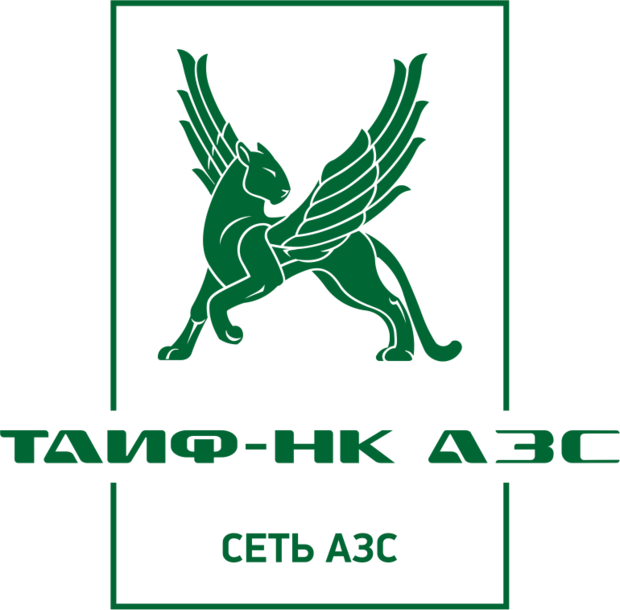Elmira Zaripova: ‘Anyone who wants and can work, who is motivated, will find a job’
The head of the Ministry of Labour of the Republic of Tatarstan — about the unemployment rate and the number of vacancies, which is almost 6 times higher than the number of unemployed citizens
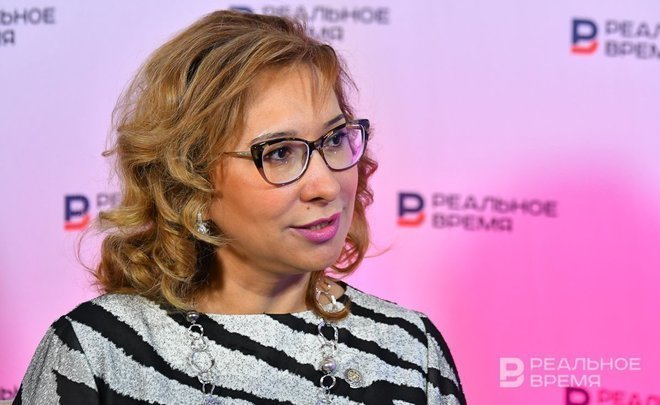
The Russian labour market faced serious challenges amid the turmoil of last year. Many foreign companies have left, and a number of enterprises have shut down their activities. In the spring, 18 thousand residents of the republic found themselves in part-time employment. Nevertheless, Tatarstan managed to maintain high stability in the labour market, where the demand for specialists is several times higher than the number of unemployed. What measures of support from the state are currently being received by Tatarstan citizens who have lost their jobs and employers themselves, whether the republic is facing a personnel shortage, and how to get a new profession for free — these and other questions were answered by Minister of Labour, Employment and Social Protection of Tatarstan Elmira Zaripova during the online conference of Realnoe Vremya.
Unemployment rate is one of the lowest in the Volga Region
Today, the unemployment rate in Tatarstan barely exceeds 2% of the total number of able-bodied population, which is almost 1,5 times less than the all-Russian indicator. 7,200 people are registered as unemployed in the republic. At the same time, there are 43 thousand vacancies in the database of employment centres, that is, six jobs per person. “Therefore, the one who wants to work, who can work, the one who is motivated, will find a job," Minister of Labour and Social Protection of the Republic of Tatarstan Elmira Zaripova is convinced.
The employment rate in Tatarstan also remains one of the highest in the Volga Federal District — it amounts to 62,6%. In Russia as a whole, the indicator is at the level of 60%, in the Volga Federal District — 59,5%.
Tatarstan managed to alleviate the tension in the labour market that arose last spring, when foreign companies began to leave the country. As a result, about 18 thousand Tatarstan citizens were transferred to part-time employment, and 400 enterprises announced that they would change their working hours. Certainly, according to the minister, this period was not as disastrous as the Covid-19 2020, when about 44 thousand workers found themselves in part-time employment:
“Last spring, measures were promptly taken at the federal level, serious support was provided by the governments of Russia and Tatarstan, which allowed us to preserve labour collectives and income levels of citizens. For this purpose, public works were organised — 1,2 thousand unemployed people participated in them, 18 thousand people who were threatened with reduction were transferred to temporary employment. On February 1, this number was reduced to 2,2 thousand people. About 4 thousand more people were retrained for new working conditions.”
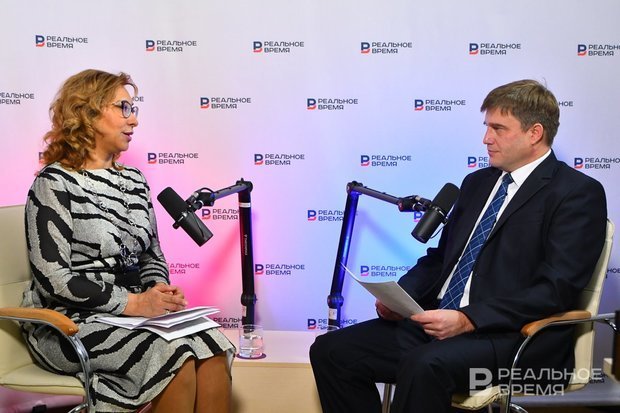
Teachers, electric and gas welders and drivers are in short supply
However, the qualification level of applicants does not always meet the needs of employers, as a result, there is a personnel shortage, noted Elmira Zaripova. Manufacturing and mechanical engineering enterprises need employees today — both highly qualified specialists and ordinary workers are needed here. The demand for teachers, nannies and educators is still high — for 10 months of 2022, the number of employees in the education system decreased by 2,1 thousand people. Last year, there was a big request from the education system to retrain and train educators, teachers, psychologists and education — today this is an industry where there are very big shifts in personnel. The healthcare sector is no exception.
The transport industry is also experiencing a strong personnel shortage today, where drivers and conductors are needed. Electric and gas welders, mechanics of mechanical assembly works are in great demand.
By the way, agriculture is gradually ceasing to be an anti-leader in terms of wages, having increased the number of employees last year. The appearance of large agricultural holdings in the republic's market, which created attractive working conditions and paid decent wages to villagers, played a role in this.
The personnel issue in healthcare is changing for the better. Previously, graduates of medical universities refused to work in public institutions due to poor working conditions, lack of modern equipment. But thanks to the programme of modernisation of hospitals and polyclinics implemented in the republic, their overhaul, equipping with modern equipment, young people began to go to vacant positions — the head of the Ministry of Labour drew attention to this trend:
“But now the graduate poses new questions to the employer — about wages, the availability of social infrastructure for employees, housing. We see that today many municipalities — Almetyevsk, Yelabuga, Naberezhnye Chelny and Kazan — are moving towards providing housing for those workers who come. The same thing is happening today in industry — job seekers need social guarantees, then they go to work for a vacant place.”

After retraining — to a new place of work
Today, the number of unemployed is mainly women who are on maternity leave or are raising a preschool child. The Ministry of Labour offers them to participate in special programmes that help them master not only a new profession, but also flexible employment — to work only a few hours a day.
Within the framework of Demography national project, training programmes have also been transformed. If earlier subsidies were given to enterprises, today this function has been taken over by three national operators, which are determined by the Ministry of Labour of Russia based on the needs of the labour market, the request of employers. The category of those who can become a member of this programme includes:
- persons aged 50 years and older, persons of pre-retirement age;
- women who are on parental leave for up to 3 years;
- women who are not in an employment relationship and have children of preschool age;
- young people under the age of 35 inclusive;
- unemployed citizens registered with the employment service;
- employees who are at risk of dismissal.
Last year, more than 9,7 thousand people were trained under this programme in Tatarstan, and the percentage of employment among them was more than 90% with planned indicators of about 80-85%.
As before, employment centres in municipal districts, which regularly hold job fairs, are platforms for job search and personnel. Besides, the single portal “Work in Russia” has been created and operates in Russia, where one can easily understand who, and where is needed to whom. Moreover, employers with a staff of more than 25 people are required to register on this portal and report on the availability of vacancies. In January of this year, 3,4 thousand Tatarstan citizens applied for a job, about 240 people applied for training. Based on the requests submitted by applicants, the education system is being built, control figures for admission to universities are being opened or, on the contrary, new directions are being closed.
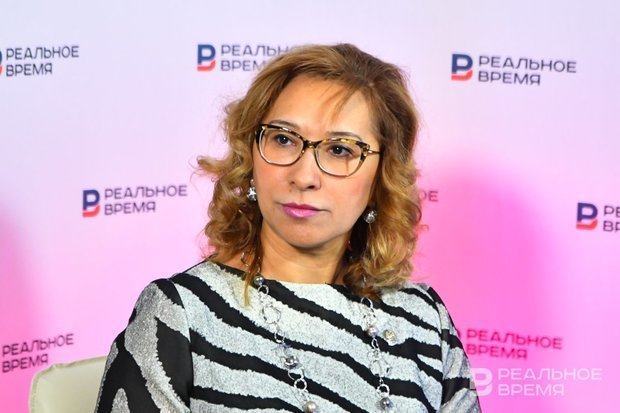
The state will pay extra for an inexperienced employee
Besides, there is the programme “Subsidised employment” — it helps young people find work, often without work experience. When hiring such employees, an organisation or enterprise receives compensation from the state in the amount of the minimum wage for each such employee within six months. The maximum compensation to the employer is 64,3 thousand rubles. Last year, this programme was used by more than 700 employers who hired more than 1,6 thousand young people under the age of 30, who, for example, have an education but no work experience, or those who are still studying but do not yet know where to go to work, or young people with disability.
By the way, this year the programme “Subsidised employment” is focused on enterprises of the military-industrial complex: “If the defense industry company hires an employee, they will receive about 260 thousand rubles — the minimum wage plus insurance premiums, but after each quarter," says Elmira Zaripova:
“According to the conditions, it must be a person from another subject of the federation. There are subjects in the country where there may be no offers on the labour market, and people are ready to move. And Tatarstan is a region that is ready to receive, and there is such serious support from the federal budget.”
Besides, the company must provide a person who has moved from another region with either compensation for part of the cost of renting housing, or a place in a hostel or other options for solving the housing issue.
In continuation of the topic of employment of disabled people, Elmira Zaripova said that 454 disabled people are on the list of unemployed in the republic, and the procedure for hiring people with disabilities has changed since this year. If the employer has a full-time staff of 35 to 100 people, then 2% of the places must be for people with disabilities, if there are more than 100 people in the staff, then 3% of the average number of disabled people. Another requirement is that previously the employer could simply declare his intentions to accept an employee with a HIA, to reserve places for them, but now he is obliged to employ a disabled person for this vacant place. This measure, Zaripova believes, will guarantee to provide people with disabilities with jobs. The Ministry of Labour and Social Protection will monitor the implementation of this requirement.

“These are warriors, patriots, each of them is a hero”
Since last year, with the beginning of the special military operation in Ukraine, the Ministry of Labour has taken over part of the care of migrants from Donbass and other Ukrainian regions. In the spring, when echelons arrived in Tatarstan with those who decided to move to Russia, their temporary residence points were deployed, an operational centre was created to address issues of employment, education, and healthcare. 65 job fairs were organised for able-bodied citizens.
“Among the arrivals, there are those who have not only found a job, but also issued a social mortgage. That is, their life horizons are definitely connected with the republic. Today, when they ask how many people work out of them, I say that the greater volume of those who could and wished, they all work. There are only either elderly people or mothers on maternity leave, raising young children, left. And even they are working part-time today. All those who moved received lump-sum payments," said the head of the Ministry of Labour of the Republic of Tatarstan.”
Special attention is paid to those Tatarstan families in which husbands, fathers, sons have been mobilised and participate in thei special military operation. Curators work in each municipal district today, various measures of social support for such families have been taken:
“Tatarstan is one of the first regions that supported the children of the participants of the special military operation — to provide places in kindergartens, meals in schools at the expense of the republican budget for students from 1st to 11th grade. A responsible employee is assigned to each family, these families are under close attention today. We all understand that these are warriors, patriots, each of them is a hero.”
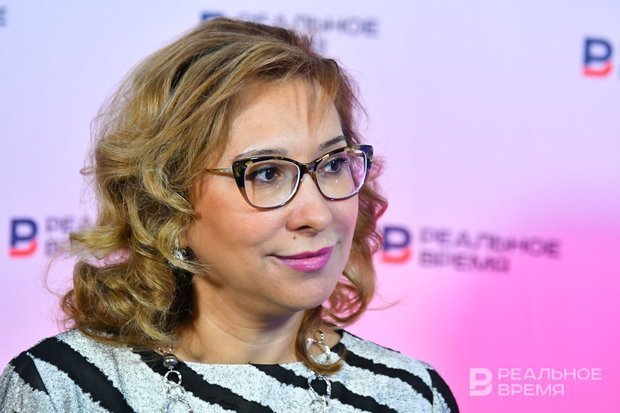
Since January 1, the new project “My Career with United Russia” has been launched in the country. Within its framework, job fairs will be held in various formats, excursions to enterprises, during which unemployed people will have the opportunity to leave their resume, arrange an interview, get advice on labor legislation.
“We offer young people to undergo career guidance testing, to build the trajectory of their future profession. We also offer individual work with anyone who wants to find a job or get new professional skills. We believe that about 27 thousand Tatarstan citizens will see progress in their professional growth thanks to this project. For what and why is this done? Because the quality of life depends on it — on where a person works, what their salary is, what is the level of professional competencies," concluded Elmira Zaripova.
Official partner:
